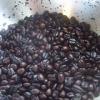-
Welcome to the eG Forums, a service of the eGullet Society for Culinary Arts & Letters. The Society is a 501(c)3 not-for-profit organization dedicated to the advancement of the culinary arts. These advertising-free forums are provided free of charge through donations from Society members. Anyone may read the forums, but to post you must create a free account.
Inexpensive/Cheap Homemade Meals
-
Similar Content
-
- 195 replies
- 58,983 views
-
- 20 replies
- 4,983 views
-
- 12 replies
- 3,885 views
-
- 12 replies
- 1,115 views
-
- 247 replies
- 67,059 views
-
-
Recently Browsing 0 members
- No registered users viewing this page.





Recommended Posts